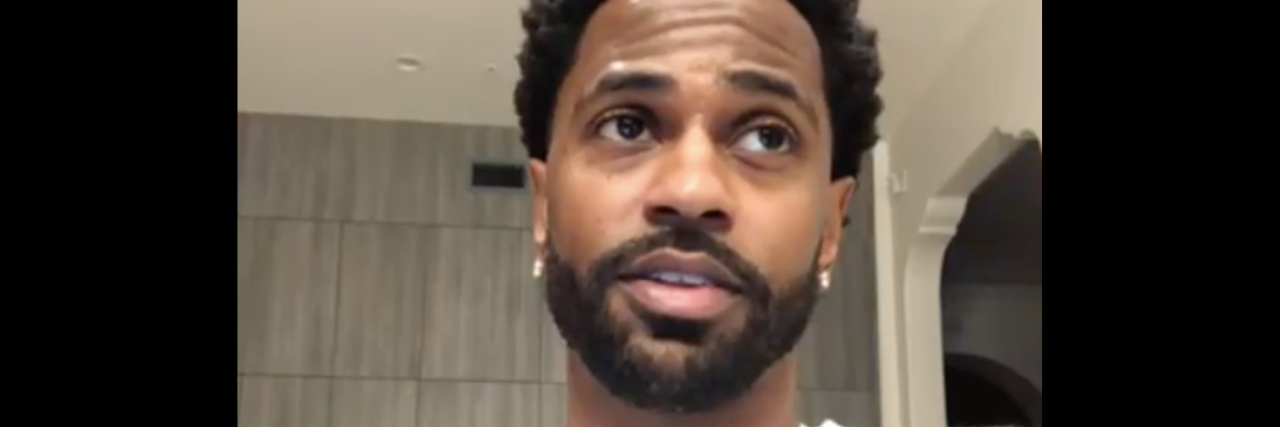Why Big Sean Sought This 'Traditional' Mental Health Treatment Over Meditation
In a series of three Instagram videos, Big Sean opened up about deciding to take a more “traditional” approach to mental health treatment.
The rapper, who has previously relied only on the holistic practice of meditating to manage his mental health, realized his depression and anxiety were getting to be too much — so he set out to find a therapist. In the first two Instagram videos he said,
I’ve been meditating since I was 17 years old. You know, that helps with anxiety and depression… but it wasn’t doing anything for [my current mental state] so I knew it required some sort of special attention. So what I did was, I started therapy — you know what I’m saying? I got a good therapist… I was blessed enough to talk to some super spiritual people, and they made me realize what I was missing in my life and one thing I was missing was clarity.
The Detroit native realized he needed to take a break to refocus on his mental health.
“I stepped back from everything I was doing, everything I had going on, because somewhere in the middle of it, dawg, I just felt lost and I didn’t know how I got there,” he said.
This isn’t the first time that Big Sean has spoken about prioritizing his mental health. Last year, he canceled dates on his Undecided Tour due to anxiety and depression. At the time he told Billboard:
I never really took the time out to nurture myself, to take care of myself. It took me a lot of depression having a lot of anxiety to realize something was off. I’ve been getting myself together, getting my mind right. So I have been taking better care of myself.
Big Sean isn’t the only black man in the music industry to talk about the importance of therapy. In 2017, Jay-Z rapped about his therapist in his critically-acclaimed project “4:44.” He was also very vocal about it during the album’s press run.
“The most important thing I got is that everything is connected,” Jay-Z told The New York Times. “Every emotion is connected and it comes from somewhere. And just being aware of it. Being aware of it in everyday life puts you at such a … you’re at such an advantage.”
In a 2013 study about mental health in black communities, 30 percent of participants admitted to having a mental illness or receiving treatment for one. Researchers found that of the study participants, black men were more likely to show concern about being labeled with a mental health issue.
Mental health struggles can affect anyone regardless of financial or social status. If you are struggling and need support, there is help available. Check out suicide prevention resources page or if you need support right now, call the National Suicide Prevention Lifeline at 1-800-273-8255.
Screenshot via Big Sean Instagram

